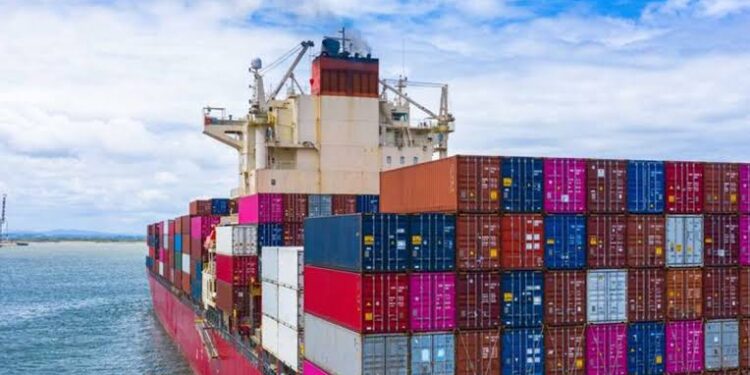An expert, Dr Emmanuel Eche, says the four per cent Free On Board (FOB) levy on import duties by the Nigeria Customs Service (NCS) will raise importers’ costs and trigger cost-push inflation.
Eche, a Senior Lecturer at the Department of Economics, Federal University Wukari, Taraba, said this in an interview with the News Agency of Nigeria (NAN) on Tuesday in Abuja.
He said that the inflationary impact would be felt particularly in sectors heavily dependent on imports, such as pharmaceuticals and machinery, in addition to higher prices for consumers.
“This in itself may push some out of business, create room for adulteration, create untold hardship among the citizenry or death,” he said.
NAN recalls that on February 4, the NCS announced plans to implement a four per cent charge on the FOB value of imports, in line with the provisions of the NCS Act 2023.
The implementation was later suspended to allow for more consultations with stakeholders, following criticism from experts and industry players who argued that the move could worsen the economic situation.
However, the Chairman of the Joint Committee on Customs and Tariff, Sen. Isah Jibrin, recently directed the NCS to immediately commence implementation of the charge.
The expert said the new charge could exacerbate inflationary pressures, disrupt supply chains, and erode competitiveness, particularly in sectors heavily dependent on imports.
He noted that although the NCS expects to generate N2.84 trillion annually from the charge to fund customs modernisation and administration aimed at boosting infrastructure, he feared its implementation could be undermined by corruption and nepotism.
“We already have avalanche of ill implemented policies and this may just be an addendum.
“The piloters of the economy are politicians who are self-centered and have no business with economic growth and development of the country.
“Many Economists, stakeholders, including manufacturers, and importers, have expressed concerns about the timing and impact of the new charge.
“We argue that it could worsen economic hardship, particularly given Nigeria’s current inflation and foreign exchange challenges,” he said.
According to him, the FOB fee has sparked intense debate, with proponents arguing that it is necessary for customs modernisation and revenue generation, while critics insist it will worsen economic hardship and hurt businesses.
“I strongly advocate that critical sectors of the economy should be exempted from such policies.
“Whatever that makes the cost of basic necessities of life go beyond the reach of the common man on the street should be critically looked into and be quashed.
“Areas of import that should be discouraged can be influenced using such tax, especially to encourage local production and consumption alternatives.
“While we keep nurturing the areas we are comparatively disadvantaged in, while at the same time making conscious efforts to be self-reliant in such sectors,” he said.
Eche further explained that the fee would affect businesses, citing that the Manufacturers Association of Nigeria (NAN) had warned that the levy could disrupt supply chains, trigger raw material shortages, and erode competitiveness.
He said that the Nigeria Employers’ Consultative Association also estimated that the charge would impose an additional N2.84 trillion in costs on businesses.
According to him, this, when transferred to final consumers, will further reduce inadequate disposable income, create additional hardship, and widen the existing income inequality.
























